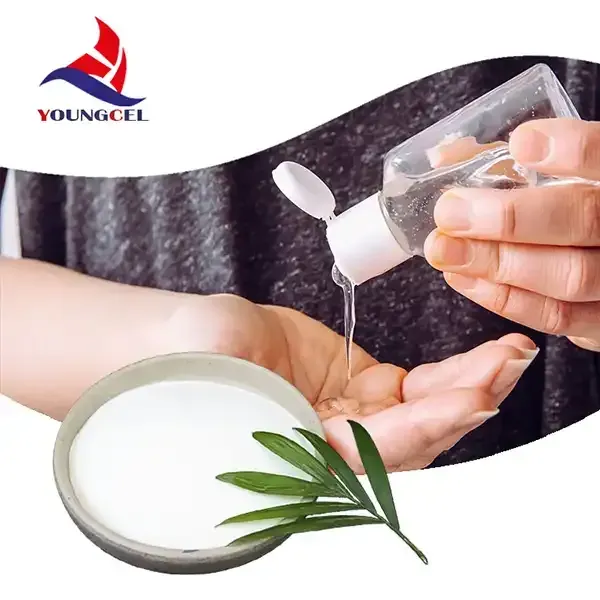Understanding HPMC Thickener Applications and Benefits
Hydroxypropyl Methylcellulose (HPMC) is a versatile and widely used thickening agent in various industries, including food, pharmaceuticals, cosmetics, and construction. As a cellulose derivative, HPMC is derived from natural cellulose, making it a non-toxic, biodegradable, and environmentally friendly option. Its unique properties make it an ideal choice for many applications, particularly as a thickener.
What is HPMC?
HPMC is a modified cellulose compound that has been chemically treated to enhance its solubility and thickening capabilities. It is a white or off-white powder, which is odorless, tasteless, and highly stable. When mixed with water, HPMC dissolves to form a viscous solution, offering excellent thickening and binding properties. This characteristic makes it a popular choice in industries that require controlled viscosity and consistency.
Applications of HPMC Thickener
1. Food Industry In food production, HPMC is commonly used as a thickener, emulsifier, and stabilizer. It helps improve the texture and mouthfeel of products such as sauces, dressings, ice creams, and baked goods. Its ability to retain moisture also contributes to extending the shelf life of food products, making it an essential ingredient in modern food processing.
2. Pharmaceuticals HPMC serves as an important excipient in the pharmaceutical sector. It is frequently used in tablet formulations as a binder and thickener. Additionally, it plays a vital role in controlled-release drug delivery systems, allowing for the gradual and sustained release of active ingredients. Its biocompatibility and non-toxicity make it a preferred choice in the formulation of various medicinal products.
3. Cosmetics and Personal Care The cosmetic industry also benefits from HPMC's thickening properties. It is incorporated in creams, lotions, shampoos, and gels to enhance their texture and stability. HPMC helps in maintaining product consistency and allows for better product application on the skin or hair. Furthermore, it can enhance the sensory experience of cosmetics, making them smoother and more aesthetically pleasing.
4. Construction In construction materials, HPMC is utilized to improve the workability and adhesion of products such as tile adhesives, caulks, and plasters. It increases viscosity and helps control water retention, ensuring that the materials remain workable for longer periods. This property is crucial in construction, where time and efficiency are vital.
hpmc thickener

Benefits of Using HPMC Thickener
1. Versatile Applications HPMC's multifunctionality makes it suitable for various industries. Its ability to improve viscosity, texture, and stability makes it an attractive choice for manufacturers across sectors.
2. Non-Toxic and Biodegradable As a natural cellulose derivative, HPMC is considered safe for human consumption and use. It is free from harmful chemicals, making it suitable for use in food and personal care products.
3. Temperature Stability HPMC is known for its thermal stability, allowing it to maintain its thickening properties under a wide range of temperatures. This characteristic is particularly beneficial in processes involving heat, such as food processing and construction.
4. Easy to Use HPMC is soluble in both hot and cold water, allowing for flexibility in formulation. Its ease of use simplifies the manufacturing process, enabling companies to achieve desired viscosity levels effortlessly.
5. Improved Shelf Life By retaining moisture and preventing separation, HPMC enhances the shelf life of products. This attribute is particularly beneficial in food and cosmetic formulations, where product stability is crucial for consumer satisfaction.
Conclusion
HPMC thickener is a vital ingredient in various industries, offering a multitude of benefits and applications. Its versatility, non-toxic nature, and ease of use make it an invaluable component in food, pharmaceuticals, cosmetics, and construction. As consumer demand for safe and effective products continues to grow, the role of HPMC within these industries is poised to expand, further underscoring its importance as a key thickening agent.
-
A Comprehensive Guide to Methyl Ethyl Hydroxyethyl Cellulose: Applications and Industry InsightsNewsNov.24,2025
-
Understanding Methyl 2 Hydroxyethyl Cellulose: Uses, Benefits & Industry InsightsNewsNov.24,2025
-
Hydroxyethyl Methyl Cellulose HEMC: Industrial Uses, Benefits & Future TrendsNewsNov.23,2025
-
HEMC Cellulose: Versatile & Sustainable Industrial Polymer | YoungcelNewsNov.23,2025
-
Methyl Hydroxyethyl Cellulose: Versatile Building Block for Industry & SustainabilityNewsNov.23,2025
-
CAS 9032 42 2: Understanding Polyvinyl Alcohol's Impact on Industry & SustainabilityNewsNov.22,2025




